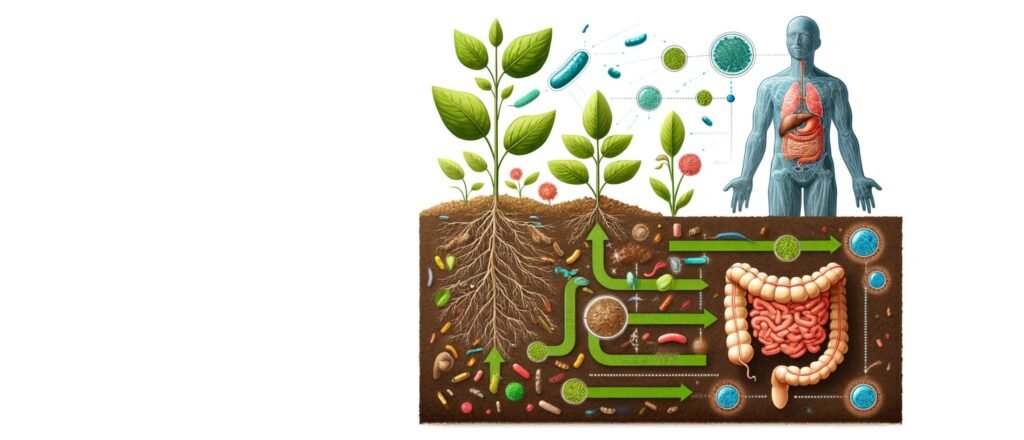Author : Anmol Agarwal
5 Mins Read
Did you know that the tiny organisms living in your gut could be influencing your health, mood, and even your thoughts? It’s fascinating to think about how much these microscopic dwellers affect our daily lives.
These organisms, known as gut bacteria, possess the unique capability to interact with our brain functions. Dr. Emeran Mayer, a world-renowned expert in gut health describes this interaction perfectly: “The gut-brain connection is a two-way street. What happens in the gut doesn’t just stay in the gut – it influences your brain, and what happens in your brain also influences your gut.” It’s like having a little advisor inside you, suggesting how you might feel or react.
These bacteria play crucial roles in regulating our energy levels, our cravings, our memories, and they might even shape our personalities. But how do these tiny creatures manage such feats?
Gut bacteria generate numerous psychoactive compounds, such as various neurotransmitters that are similar to the communication chemicals in our brains. They send these signals via the vagus nerve, a direct line to the brain. Interestingly, most of these messages travel from the gut to the brain, rather than the other way around. Moreover, when detrimental bacteria disturb the equilibrium of our gut, our immune response is activated, which can influence our mood and brain, possibly explaining feelings of anxiety or sadness when our gut is upset.
This complex interplay highlights the crucial role of gut health in our mental state and overall health.
How Your Diet Shapes Your Gut Microbiome?
Our bodies serve as vibrant ecosystems filled with trillions of microbes such as bacteria, viruses, and fungi, which constitute our gut microbiome. This complex network is vital, helping break down the food we eat, producing essential nutrients, regulating our immune system, and shielding us from harmful pathogens. The well-being of our microbiome is shaped by various factors—our surroundings, the medications we take, our birth process, and most notably, our diet. Feeding on a diet rich in dietary fibers from fruits, vegetables, nuts, legumes, and whole grains does wonders. These nutrients foster our microscopic friends, who in return produce compounds that strengthen our gut, enhance our immune function, and keep inflammation at bay. Conversely, indulging in processed foods can disrupt this delicate balance, diminishing our gut’s health. By choosing meals that are minimally processed and packed with polyphenols, we actively support a healthier microbiome. Every meal is an opportunity to nourish this vibrant inner world, promoting our overall well-being and helping us lead healthier lives.
The table below outlines various types of gut bacteria, detailing their locations, sources, and the health benefits they offer.
Soil Bacteria’s Impact on Gut Bacteria Health
Our gut microbes are shaped not only by our dietary choices but also by the diet of the plants we consume. This highlights the indispensable role of soil in our nutritional health. When plants are nurtured in soil teeming with beneficial microbes, they absorb these tiny life forms. We then take in these microbes when we consume these plants, which enriches our gut microbiome, boosting its diversity and vitality.
From a young age, playing in the soil isn’t just fun—it’s a formative experience for our immune systems. Exposure to a rich array of soil microbes can fine-tune children’s immune responses, safeguarding them against autoimmune diseases and allergies. The simple act of children playing outside, getting their hands dirty, is more than just play; it’s nature’s way of introducing them to a world of beneficial microbes, potentially setting them up for better long-term health. This connection between our environment, what we eat, and our health is a beautiful reminder of how deeply interconnected life is.
From Screen Time to Green Time: How Playing in Soil is Beneficial for Children
Playing in the soil isn’t just fun for children; it offers significant health benefits compared to staying clean indoors. When kids dig into the soil, they’re exposed to a wide variety of microbes, which boosts their microbial diversity. This exposure helps their immune systems develop more robustly, teaching them to distinguish between harmful and harmless agents. As a result, they’re less prone to allergies and autoimmune diseases.
Children who play in the soil also have higher levels of beneficial gut bacteria like Lactobacillus and Bifidobacterium, promoting a healthier digestive system. This rich microbial environment supports better metabolic development, reducing the risk of obesity and diabetes. Moreover, these microbial interactions can positively influence mood and stress responses. Kids who interact with a diverse microbial community tend to have better stress regulation and overall mood.
However, in today’s digital age, children are often so engrossed with technology that they rarely spend time outdoors, let alone play in the soil. It’s crucial for children to reconnect with nature and engage in activities that involve playing in the soil. Doing so boosts their microbial diversity, strengthens their immune system, and enhances their overall health. Letting kids get dirty isn’t just okay—it’s essential for their long-term well-being.
At Hosachiguru, we’re passionate about creating environments that encourage kids to play in the soil. Our managed farmlands provide the perfect setting for children to explore nature, get their hands dirty, and reap the myriad health benefits that come from interacting with a diverse microbial community. By fostering these connections to the earth, we’re not only promoting healthier lifestyles but also instilling a love for nature that can last a lifetime.
Conclusion
At Hosachiguru, we are deeply committed to regenerative agricultural practices that enhance the nutritional quality and microbial diversity of the plants we cultivate. By investing in the health of our soil, we do more than just grow plants; we nurture a foundation for health that extends from farm to table. This not only results in healthier plants but also supports the gut microbiomes of everyone who enjoys our produce. For us, the relationship between the soil, our food, and your health is at the heart of everything we do. We take pride in knowing that with every harvest, we are contributing to a healthier, more sustainable world.

 29 May 2024
29 May 2024  6 Min
6 Min


